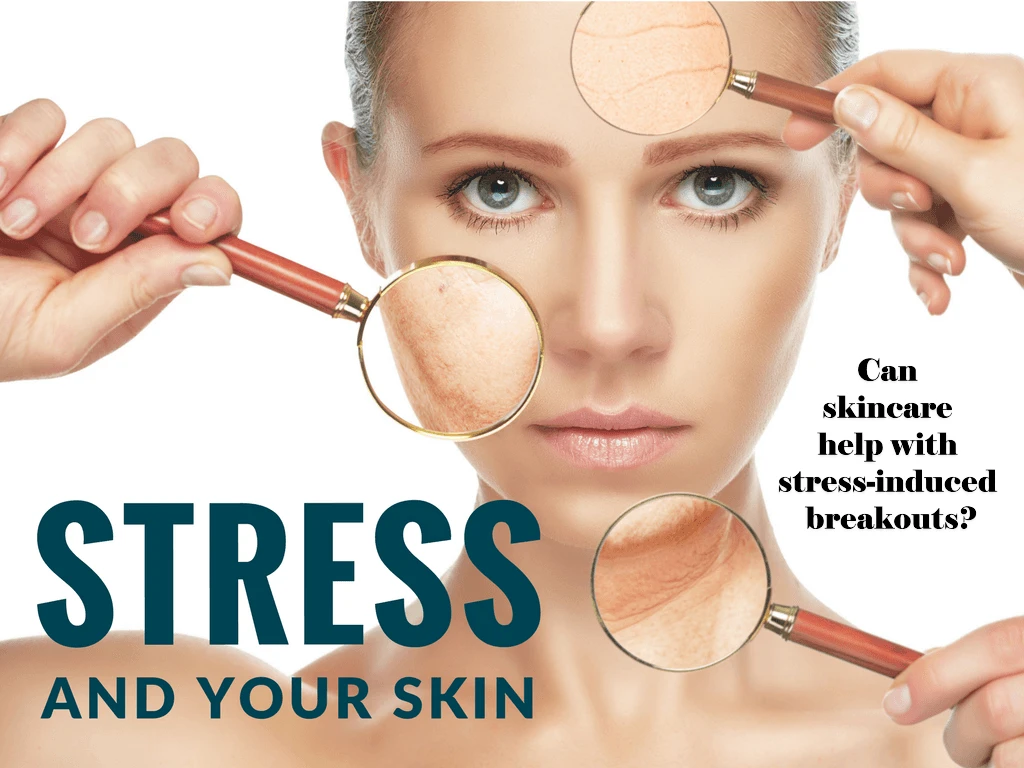Can skincare help with stress-induced breakouts?
Can Skincare Help with Stress-Induced Breakouts?
Yes, skincare can play a valuable role in managing stress-induced breakouts—but it's not a cure on its own. Stress affects your skin in many ways, often triggering or worsening acne due to hormonal shifts, increased oil production, inflammation, and slower skin repair. Understanding how skincare helps—and what it can and can’t do—is key to building an effective routine during high-stress times.
How Stress Triggers Breakouts
When you're stressed, your body produces more cortisol (the stress hormone), which stimulates sebaceous (oil) glands in your skin. This leads to excess oil that can clog pores and create a breeding ground for acne-causing bacteria. Additionally, stress can weaken the skin barrier, delay wound healing, and increase inflammation—all of which contribute to breakouts or worsen existing acne.
The Role of Skincare in Managing Stress Breakouts
While skincare alone won’t eliminate stress or its internal effects, a targeted skincare routine can help manage the visible signs of stress on your skin and support its healing process.
1. Cleansing Gently but Effectively
Stress can make your skin more reactive. Using a gentle, non-comedogenic cleanser helps remove dirt, excess oil, and pollutants without stripping the skin’s natural barrier. Over-washing or using harsh cleansers can worsen inflammation and lead to more breakouts.
2. Balancing Oil Production
Incorporate lightweight, oil-free moisturizers and serums with ingredients like niacinamide, which helps regulate sebum production and calm inflammation. Avoid heavy, pore-clogging products if your skin is breaking out.
3. Targeted Treatments
Acne-fighting ingredients like salicylic acid (a beta hydroxy acid) can deeply cleanse pores, while benzoyl peroxide reduces acne-causing bacteria. Retinoids also help with skin turnover and preventing clogged pores. These should be introduced gradually to avoid irritation.
4. Soothing Inflamed Skin
Look for calming ingredients like aloe vera, centella asiatica (cica), green tea, or chamomile. These can help soothe red, inflamed skin and support skin barrier repair—both of which are critical during stress breakouts.
5. Maintaining the Skin Barrier
Stress can compromise your skin’s protective barrier, leading to increased sensitivity and dehydration. Ceramide-rich moisturizers or products containing hyaluronic acid help maintain hydration and support barrier function.
The Mind-Skin Connection
Beyond ingredients, the act of doing skincare itself can help reduce stress. Turning your routine into a mindful ritual—massaging your face gently, focusing on your breath, and taking time for yourself—can have a calming effect on your nervous system. This helps not only your mind but also your skin.
Other Supporting Factors
While skincare helps manage external symptoms, stress-induced acne also benefits from holistic support:
-
Sleep well: Skin repairs itself during rest.
-
Eat a balanced diet: Reduce sugar and processed foods that can worsen inflammation.
-
Stay hydrated: Water helps flush out toxins and maintain skin health.
-
Manage stress: Try meditation, journaling, or light exercise to lower cortisol levels.
Conclusion
Skincare can absolutely help with stress-induced breakouts—both by treating the physical symptoms and by providing emotional relief through consistent rituals. Combined with stress management and healthy habits, your skincare routine becomes a powerful tool to keep your skin and mind balanced during challenging times.

Related Blog
What Causes Oily Skin and Can It Be Managed Naturally? Exploring Root Causes and Gentle Solutions
Aug 2, 2025 by Admin
General
What Are the Signs That You Have Sensitive Skin? Key Symptoms to Help You Identify This Delicate Skin Type
Aug 1, 2025 by Admin
General